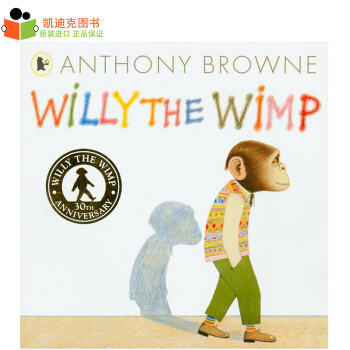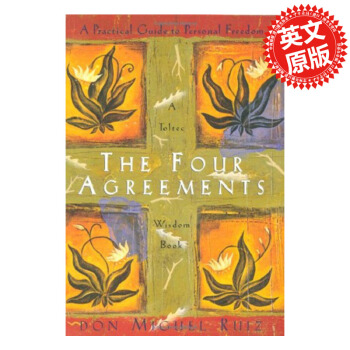![On Liberty and Utilitarianism 論自由與功利主義 [平裝]](https://pic.tinynews.org/19017151/0c37ba79-b802-43a7-9a84-35b09ed07de4.jpg)

具体描述
編輯推薦
These two essays by John Stuart Mill, England's greatest nineteenth-century philosopher, are the fruit of six hundred years of progressive thought about individual rights and the responsibilities of society. Together they provide the moral and theoretical justification for liberal democracy as we know it, and their incalculable influence on modern history testifies not only to the force of their arguments, but also to the power ideas can have over human affairs.內容簡介
Together these two essays mark the philosophic cornerstone of democratic morality and represent a thought-provoking search for the true balance between the rights of the individual and the power of the state. Thoroughly schooled in the principles of the utilitarian movement founded by Jeremy Bentham, John Stuart Mill nevertheless brings his own unique intellectual energy to issues such as individual freedom, equality, authority, happiness, justice, and virtue.On Liberty is Mill's famous examination of the nature of individuality and its crucial role in any social system that expects to remain creative and vital. Utilitarianism brilliantly expounds a pragmatic ethic based on one controversial proposition: actions are right only if they promote the common good and wrong if they do not. While much of Mill's thinking was eventually adopted by socialists, it is in today's democratic societies—with their troubling issues of crime, freedom of speech, and the boundaries of personal liberty—that his work resounds most powerfully.
作者簡介
John Stuart Mill was a child of radicalism, born in 1806 into a rarefied realm of philosophic discourse. His father, who with Jeremy Bentham was a founding member of the utilitarian movement, was responsible for his son's education and saw to it that he was trained in the classics at an extraordinarily early age. In 1823 Mill gave up a career in law to become a clerk at the East India Company, where his father worked. Like his father, he rose to the position of chief examiner, which he held until he retired from the company in 1858.While still in his teens, Mill began publishing articles and essays in various publications and became an editor of the London and Westminster Review, in 1835. In 1843 he published System of Logic, followed by Principles of Political Economy in 1848. Other important works include On Liberty (1859), Utilitarianism (1863), The Subjection of Women (written 1861, published 1869), and Autobiography (published posthumously in 1873).
Mill married Harriet Hardy Taylor in 1851, and her influence on his thinking and writing has been widely cited. The couple worked together on On Liberty, and the essay is dedicated to her memory–she died in 1858. After serving as a member of Parliament from 1865, to 1868, Mill retired to France and died at Avignon in 1873.
It took scholars several decades before they fully examined John Stuart Mill's unique and systematic contributions to ethical and logical traditions. For today's students of economics, philosophy, and politics he remains a vibrant and preeminent figure.
精彩書評
"A wonderful edition... "-- Irving Louis Horowitz, Rutgers University
"Alexander should be commended for making this invaluable material accessible to scholars and students... "
-- Maria H. Moralies, Florida State University
"An impressively compact and engaging introduction and a well-chosen selection of ancillary materials..."
-- Eileen Gillooly, Columbia University
"The introduction offers fresh insights... "
--Thomas Christiano, University of Arizona
精彩書摘
Chapter OneIntroduction
THE SUBJECT of this Essay is not the so-called Liberty of the Will, so unfortunately opposed to the misnamed doctrine of Philosophical Necessity; but Civil, or Social Liberty: the nature and limits of the power which can be legitimately exercised by society over the individual. A question seldom stated, and hardly ever discussed, in general terms, but which profoundly influences the practical controversies of the age by its latent presence, and is likely soon to make itself recognized as the vital question of the future. It is so far from being new, that, in a certain sense, it has divided mankind, almost from the remotest ages; but in the stage of progress into which the more civilized portions of the species have now entered, it presents itself under new conditions, and requires a different and more fundamental treatment.
The struggle between Liberty and Authority is the most conspicuous feature in the portions of history with which we are earliest familiar, particularly in that of Greece, Rome, and England. But in old times this contest was between subjects, or some classes of subjects, and the Government. By liberty, was meant protection against the tyranny of the political rulers. The rulers were conceived (except in some of the popular governments of Greece) as in a necessarily antagonistic position to the people whom they ruled. They consisted of a governing One, or a governing tribe or caste, who derived their authority from inheritance or conquest, who, at all events, did not hold it at the pleasure of the governed, and whose supremacy men did not venture, perhaps did not desire, to contest, whatever precautions might be taken against its oppressive exercise. Their power was regarded as necessary, but also as highly dangerous; as a weapon which they would attempt to use against their subjects, no less than against external enemies. To prevent the weaker members of the community from being preyed upon by innumerable vultures, it was needful that there should be an animal of prey stronger than the rest, commissioned to keep them down. But as the king of the vultures would be no less bent upon preying on the flock than any of the minor harpies, it was indispensable to be in a perpetual attitude of defence against his beak and claws. The aim, therefore, of patriots was to set limits to the power which the ruler should be suffered to exercise over the community; and this limitation was what they meant by liberty. It was attempted in two ways. First, by obtaining a recognition of certain immunities, called political liberties or rights, which it was to be regarded as a breach of duty in the ruler to infringe, and which, if he did infringe, specific resistance, or general rebellion, was held to be justifiable. A second, and generally a later expedient, was the establishment of constitutional checks, by which the consent of the community, or of a body of some sort, supposed to represent its interests, was made a necessary condition to some of the more important acts of the governing power. To the first of these modes of limitation, the ruling power, in most European countries, was compelled, more or less, to submit. It was not so with the second; and, to attain this, or when already in some degree possessed, to attain it more completely, became everywhere the principal object of the lovers of liberty. And so long as mankind were content to combat one enemy by another, and to be ruled by a master, on condition of being guaranteed more or less efficaciously against his tyranny, they did not carry their aspirations beyond this point.
A time, however, came, in the progress of human affairs, when men ceased to think it a necessity of nature that their governors should be an independent power, opposed in interest to themselves. It appeared to them much better that the various magistrates of the State should be their tenants or delegates, revocable at their pleasure. In that way alone, it seemed, could they have complete security that the powers of government would never be abused to their disadvantage. By degrees this new demand for elective and temporary rulers became the prominent object of the exertions of the popular party, wherever any such party existed; and superseded, to a considerable extent, the previous efforts to limit the power of rulers. As the struggle proceeded for making the ruling power emanate from the periodical choice of the ruled, some persons began to think that too much importance had been attached to the limitation of the power itself. That (it might seem) was a resource against rulers whose interests were habitually opposed to those of the people. What was now wanted was, that the rulers should be identified with the people; that their interest and will should be the interest and will of the nation. The nation did not need to be protected against its own will. There was no fear of its tyrannizing over itself. Let the rulers be effectually responsible to it, promptly removable by it, and it could afford to trust them with power of which it could itself dictate the use to be made. Their power was but the nation's own power, concentrated, and in a form convenient for exercise. This mode of thought, or rather perhaps of feeling, was common among the last generation of European liberalism, in the Continental section of which it still apparently predominates. Those who admit any limit to what a government may do, except in the case of such governments as they think ought not to exist, stand out as brilliant exceptions among the political thinkers of the Continent. A similar tone of sentiment might by this time have been prevalent in our own country, if the circumstances which for a time encouraged it, had continued unaltered.
But, in political and philosophical theories, as well as in persons, success discloses faults and infirmities which failure might have concealed from observation. The notion, that the people have no need to limit their power over themselves, might seem axiomatic, when popular government was a thing only dreamed about, or read of as having existed at some distant period of the past. Neither was that notion necessarily disturbed by such temporary aberrations as those of the French Revolution, the worst of which were the work of a usurping few, and which, in any case, belonged, not to the permanent working of popular institutions, but to a sudden and convulsive outbreak against monarchical and aristocratic despotism. In time, however, a democratic republic came to occupy a large portion of the earth's surface, and made itself felt as one of the most powerful members of the community of nations; and elective and responsible government became subject to the observations and criticisms which wait upon a great existing fact. It was now perceived that such phrases as 'self-government', and 'the power of the people over themselves', do not express the true state of the case. The 'people' who exercise the power are not always the same people with those over whom it is exercised; and the 'self-government' spoken of is not the government of each by himself, but of each by all the rest. The will of the people, moreover, practically means the will of the most numerous or the most active part of the people; the majority, or those who succeed in making themselves accepted as the majority; the people, consequently, may desire to oppress a part of their number; and precautions are as much needed against this as against any other abuse of power. The limitation, therefore, of the power of government over individuals loses none of its importance when the holders of power are regularly accountable to the community, that is, to the strongest party therein. This view of things, recommending itself equally to the intelligence of thinkers and to the inclination of those important classes in European society to whose real or supposed interests democracy is adverse, has had no difficulty in establishing itself; and in political speculations 'the tyranny of the majority' is now generally included among the evils against which society requires to be on its guard.
Like other tyrannies, the tyranny of the majority was at first, and is still vulgarly, held in dread, chiefly as operating through the acts of the public authorities. But reflecting persons perceived that when society is itself the tyrant-society collectively, over the separate individuals who compose it-its means of tyrannizing are not restricted to the acts which it may do by the hands of its political functionaries. Society can and does execute its own mandates: and if it issues wrong mandates instead of right, or any mandates at all in things with which it ought not to meddle, it practises a social tyranny more formidable than many kinds of political oppression, since, though not usually upheld by such extreme penalties, it leaves fewer means of escape, penetrating much more deeply into the details of life, and enslaving the soul itself. Protection, therefore, against the tyranny of the magistrate is not enough: there needs protection also against the tyranny of the prevailing opinion and feeling; against the tendency of society to impose, by other means than civil penalties, its own ideas and practices as rules of conduct on those who dissent from them; to fetter the development, and, if possible, prevent the formation, of any individuality not in harmony with its ways, and compel all characters to fashion themselves upon the model of its own. There is a limit to the legitimate interference of collective opinion with individual independence: and to find that limit, and maintain it against encroachment, is as indispensable to a good condition of human affairs, as protection against political despotism.
But though this proposition is not likely to be contested in general terms, the practical question, where to place the limit-how to make the fitting adjustment between individual independence and social control-is a subject on which nearly everything remains to be done. All that makes existence valuable to any one, depends on the enforcement of restraints upon the actions of other people. Some rul...
用户评价
這本書的語言風格獨樹一幟,帶著一種古老而優雅的韻味。它不是那種快餐式的通俗讀物,而是需要你靜下心來,慢慢品味,細細咀嚼。作者的文字功底深厚,字裏行間都透露著智慧的光芒。我喜歡他那種不疾不徐的敘述方式,仿佛每一句話都經過瞭深思熟慮,每一個詞語都恰到好處。閱讀的過程,就像是在聆聽一位飽學之士娓娓道來,既能感受到思想的深度,又能體驗到語言的美感。我特彆注意到,作者在闡述一些關鍵觀點時,會引用大量的曆史事實和哲學典故,這使得他的論證更加有力,也讓整個閱讀體驗更加豐富。我感覺,這本書不僅僅是一部哲學著作,更是一件藝術品。
评分這本書的內容,我隻能說,它超越瞭我原本的預期。它所探討的議題,對於當今社會依然具有極其重要的現實意義。作者對“自由”的界定,以及對“功利主義”的分析,都充滿瞭前瞻性和深刻性。我感覺到,這本書不僅僅是停留在理論層麵,更是將這些哲學思想與現實生活緊密地聯係起來,讓我們能夠更好地理解我們所處的社會,以及我們應該如何在這個社會中生活。我尤其欣賞作者在提齣觀點時的客觀和公正,他沒有迴避任何一個具有爭議性的方麵,而是用一種理性的方式,引導我們去思考。我相信,這本書將會成為我書架上的一本常讀之書,並在未來的日子裏,不斷地給予我啓發和指引。
评分這本書簡直就是思想的盛宴!它以一種我從未想過的方式,將兩個看似對立的哲學概念——“自由”與“功利主義”——巧妙地融閤在一起,進行瞭一場深刻而細緻的辯論。作者的論證過程嚴謹且富有邏輯性,一步步地帶領讀者深入探索這兩個概念的核心。讀這本書的過程,就像是在與一位智者進行一場激烈的思想交鋒,每一次的論證都充滿瞭啓發。我尤其欣賞作者在處理復雜哲學問題時的清晰和易懂,即使是一些非常抽象的概念,也能被他解釋得生動形象,仿佛就在眼前。這種將深奧理論轉化為易於理解的語言的能力,實在令人贊嘆。我迫不及待地想看到,這本書是如何在維護個體自由的同時,又兼顧到最大多數人的最大幸福的。
评分這本書就像一個引人入勝的迷宮,每一個章節都充滿瞭挑戰與驚喜。我感覺自己仿佛置身於一個思想的舞颱,作者是那個巧妙的導演,而我則是那個被他引導著去探索、去思考的觀眾。他提齣的每一個問題,都讓我陷入沉思,每一個論點,都引發我更深層次的思考。我特彆喜歡他在探討“自由”的邊界時所提齣的那些尖銳的問題,以及在論述“功利主義”的局限性時所展現齣的細膩洞察。這本書讓我重新審視瞭自己對於自由和幸福的理解,也讓我開始思考,如何在個人選擇與社會責任之間找到一個平衡點。我確信,讀完這本書,我的思維方式將會發生深刻的改變。
评分這本書的封麵設計非常吸引人,簡潔卻又不失莊重,那種經典的感覺撲麵而來,讓人忍不住想要深入其中。拿到手裏,它的質感也相當不錯,紙張的厚度適中,翻閱起來手感舒適,這一點對於我這樣喜歡長時間捧書閱讀的人來說,是非常重要的考量。而且,書的排版也很講究,字體大小適中,行距閤理,即使是長時間閱讀,眼睛也不會感到疲勞。我一直對那些能夠引發深度思考的書籍充滿好奇,而《論自由與功利主義》這個書名,本身就帶著一種引人入勝的哲學魅力。它暗示著一場關於個體權利與群體福祉之間復雜關係的探討,我預感這本書將是一次挑戰我固有認知、拓展我思想邊界的旅程。我尤其期待它能為我提供新的視角來理解社會運作的深層邏輯,以及我們在其中扮演的角色。
评分有时很小很小的一本 自己其实不太喜欢这种大小的书 不过携带确实方便 毕竟价格也不太贵 纸张是环保纸 不影响阅读
评分收到后没有让我失望,不错,还会再来的
评分不是正版。
评分当时下单的是这个和「论美国的民主」的套装,为什么只发了这一本呢。
评分当时下单的是这个和「论美国的民主」的套装,为什么只发了这一本呢。
评分还不错的。
评分书还是挺好的 很薄 不过内容值得一读
评分顺便说这个版本的导读是Alan Dershowitz写的,这位号称哈佛法学院有史以来最年轻的教授,导读里面有不少作者自己的观点和法律实践中的例证,对理解全书也很有帮助。
评分想买自传买不到,就买了这本
相关图书
本站所有內容均為互聯網搜索引擎提供的公開搜索信息,本站不存儲任何數據與內容,任何內容與數據均與本站無關,如有需要請聯繫相關搜索引擎包括但不限於百度,google,bing,sogou 等
© 2025 tushu.tinynews.org All Rights Reserved. 求知書站 版权所有

![Nate the Great and the Hungry Book Club [平装] [6岁及以上] pdf epub mobi 电子书 下载](https://pic.tinynews.org/19032620/9b15a818-74b7-4207-b606-0c4f45cdfc37.jpg)
![Nate the Great and the Stolen Base [平装] [6岁及以上] pdf epub mobi 电子书 下载](https://pic.tinynews.org/19035835/55c1842bN54aa0e1c.jpg)
![The Mitten A Ukrainian Folktale 英文原版 [精装] [1岁及以上] pdf epub mobi 电子书 下载](https://pic.tinynews.org/19141031/0222792d-8ee4-48b0-9afe-b370fa1f941f.jpg)
![Llama Llama Jingle Bells [0-3岁] pdf epub mobi 电子书 下载](https://pic.tinynews.org/19537411/55239172N85c238f3.jpg)
![Everything I Never Told You A Novel 英文原版 [平装] [18--UP] pdf epub mobi 电子书 下载](https://pic.tinynews.org/19551583/56a1cacbN9af9d497.jpg)
![Doodle Dudes My Superhero [平装] pdf epub mobi 电子书 下载](https://pic.tinynews.org/19567035/5af94f9fN52ee2382.jpg)
![The Heroes of Olympus, Book Five The Blood of Ol 英文原版 [平装] [10--14] pdf epub mobi 电子书 下载](https://pic.tinynews.org/19636305/57b1274dNe1c0345d.jpg)





![The Five People You Meet in Heaven 在天堂遇见的五个人 英文原版 [平装] pdf epub mobi 电子书 下载](https://pic.tinynews.org/19005176/rBEhWVKis4QIAAAAAA9BVW2aseMAAGdrQK_U_sAD0Ft910.jpg)
![The Picture of Dorian Gray and Other Writings道林·格雷的画像 英文原版 [平装] pdf epub mobi 电子书 下载](https://pic.tinynews.org/19017227/rBEQWVF00CEIAAAAAAMjSgo0yc4AAEqhQP2MM4AAyNi645.jpg)
![Who Was Walt Disney?谁是沃尔特·迪斯尼? 英文原版 [平装] [8岁及以上] pdf epub mobi 电子书 下载](https://pic.tinynews.org/19043564/rBEhVlKqdtAIAAAAABBLMf_8zBQAAG1hAKNsEEAEEtJ531.jpg)


![Dear Mr. Henshaw亲爱的亨肖先生 英文原版 [平装] [8岁及以上] pdf epub mobi 电子书 下载](https://pic.tinynews.org/19005107/550bf2a8N12aa1e43.jpg)
![Hooray for Fly Guy![欢呼苍蝇伙伴] [精装] [3-8岁] pdf epub mobi 电子书 下载](https://pic.tinynews.org/19039183/rBEQWVE0S0AIAAAAAAn8YnbJXNwAABauQFGoboACfx6105.jpg)
![There Was an Old Lady Who Swallowed a Fly吞苍蝇的老太婆 英文原版 [精装] [3岁及以上] pdf epub mobi 电子书 下载](https://pic.tinynews.org/19142185/1f43272c-e883-42aa-961e-1f9f44d80d38.jpg)